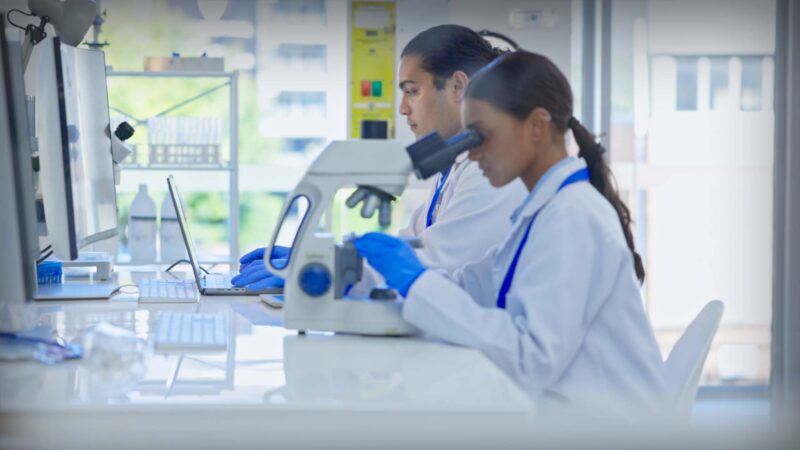Bowel Cancer Australia recently announced a team led by Professor Michael Samuel as the successful applicant for a three-year $600k early-onset bowel cancer research project through the 2023 round of Cancer Australia’s Priority-driven Collaborative Cancer Research Scheme (PdCCRS).
According to Bowel Cancer Australia, bowel cancer in the under fifties is trending upward, with 1-in-9 new bowel cancer cases now occurring in people under age 50, and presentation with metastatic disease more frequent in this demographic. Rates in the over fifties have stabilised or are declining.
Rho-associated kinase or ROCK, is an enzyme (protein) found in everyone, and it controls the shape and movement of cells within the body.
The way in which cancer cells communicate with normal cells in their environment via ROCK has been discovered to drive disease progression (invasion, metastasis, and recurrence). This understanding has revealed that blocking cancers from hijacking normal cells in this way could be a new way to target the disease.
Professor Samuel of the Centre for Cancer Biology (an alliance between the University of South Australia and SA Pathology) and the Basil Hetzel Institute for Translational Health Research will investigate ROCK-induced early-onset bowel cancer progression.
“People diagnosed with early-onset bowel cancer have a 50% chance that their cancer will recur or spread to other organs following initial intervention (e.g. surgery to remove the primary cancer), compared to around 30% in people diagnosed with late-onset bowel cancer,” says Professor Samuel.
“We have evidence that ROCK activity in bowel cancers drives this process by influencing how cancers communicate with their environment. Our project will investigate how this happens. We will also study whether certain effects of ROCK activation in early-onset bowel cancers can help us predict whose cancers will recur and whose will not,” he continues.
“In a practical sense, this could help us use targeted therapies that block cancer cells from communicating with their environment, in people who are most likely to experience recurrence of their cancer. It could also help us minimise the use of debilitating chemotherapies,” he adds.
The research team, which includes clinicians from the Central Adelaide Local Health Network, will also be examining whether proteins that interact with ROCK cause early-onset bowel cancer progression, and if they do, targeting these proteins would be a way of stopping ROCK from accelerating tumour growth.
Source: Bowel Cancer Australia
You Might also like
-
Medicinal cannabis in Australia Update
According to the Australian Journal of General Practice, published by the Royal Australian College of General Practitioners, more than 130,000 medicinal cannabis approvals have been issued in Australia to date, mostly by general practitioners, with approximately 65% of these to treat chronic non-cancer pain. Despite robust supportive data from animal models, current clinical trial evidence for THC and CBD efficacy in chronic pain is incomplete. In their prescribing decisions, doctors must balance patient demand and curiosity with caution regarding potential risks and limited efficacy.
Australian Health Journal met with 3 speakers at the recent ARCS22 Conference providing an update on medicinal cannabis. The discussion with the speakers now centres on affordability and access.
-
The world of AI avatars in dementia care
Dementia care is one of the critical issues facing the aged care industry. About 500,000 Australians currently live with the brain disorder condition, and this is tipped to rise to 1.1 million in a generation.
How to effectively provide quality care for people living with dementia was a key element of the royal commission into aged care, which found the complex care required was an ongoing challenge for the industry.
-
New clinical research entity first to operate across both Australia and New Zealand
Over the past 30 years, 18,000 clinical trials that have been registered in Australia, with the sector contributing $1.4 billion to Australia’s economy annually. Trials are a critical aspect of evidence-based medicine, and are essential for testing how new treatments, tests and vaccines will work. In New Zealand they contribute $146 million to the New Zealand economy.
To capitalise on this unique position and growth, a coordinated multi-site clinical research operation was missing, until now.


